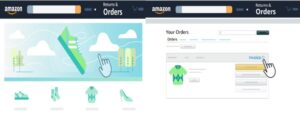After Brexit deal, VAT issues and customs procedures in Germany
After Brexit deal, VAT issues and Customs procedures in Germany, due to the mutual assistance protocol that is part of the Brexit deal. There have been some simplifications to the fiscal representation requirements in certain countries. There were some EU member states that relaxed or even removed requirements related to fiscal representation. In general, the UK will regard as any other third country for the purposes of VAT.
What concerns do businesses face in regard to Brexit VAT changes?
Fiscal representation requirements were the primary inconsistencies and uncertainties faced by businesses. Before the Brexit deal, many tax offices insisted on the implementation of fiscal representation by December 31st. After Brexit, the requirement was removed altogether.
Connecting VAT numbers and EU EORI numbers
More uncertainties emerged around the linking of VAT numbers to EU EORI numbers. As an example, a business being automatically issued an XI EORI by HMRC. Then trying to get a DE EORI number. German tax authorities were unable to issue a DE EORI because to the EU EORI system. The XI number was already an EU EORI number. But HMRC was unable to link the client’s EU VAT numbers to the XI EORI. A work around was finally found but only after several calls back and forth with the EU Commission and HMRC.
Organisational delays
Tax office backlogs caused issues for businesses awaiting new VAT registrations in EU member . In one instance, a business with a German VAT registration application in process had stock held up at customs in Germany. Due to Brexit uncertainties and tax office backlogs, the business was unable to get VAT registered in time. Therefore it could not import into Germany after Brexit. There were also some businesses that had already agreed DDP terms with their customers but could not fulfill their orders.
Customs procedures and transit arrangements
Another significant issue emerged in the form of inconsistencies in the transit arrangements. The customs procedures used the couriers and transport companies moving goods for established UK businesses into Europe. It is quite common for businesses to use multiple providers who, in turn, use a variety of transit arrangements. That from a VAT point of view, can have different consequences. Sorting out these customs and transit issues has created additional workload for businesses and in some cases created more uncertainty.
What is need in these situations to understand? And what transit arrangements are in place? Clear exchange of information between the customs arrangements and the VAT treatment is vital.
What other issues are businesses facing as a result of Brexit VAT changes?
Indirect customs representation is another issue that has come up. Although this is a customs requirement. It is indirectly related to VAT and has created more uncertainty for businesses.
As Germany has begun to enforce certain regulations. Businesses from third countries wishing to do business in Germany may now need to appoint a German customs representative or agent for imports. This means that even if businesses have acquired a German VAT number and an EU EORI number, they may still need to an appoint a German customs representative.
Businesses and tax offices alike are still in the process of stabilising their processes after Brexit. There are deep backlogs for new VAT registrations with HMRC and with EU tax authorities. Both Brexit and COVID have had an incredible administrative impact on business.


